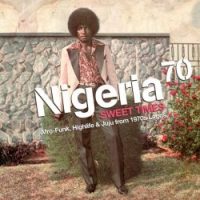
The Shuffle: “E Ma S’eka” proves Bola Johnson deserves more reverence in the Nigerian music canon
The sample behind the latest Smino & J. Cole collaboration

The sample behind the latest Smino & J. Cole collaboration
There’s a very strong argument for the 1970’s as the golden era of Nigerian music. That was the decade of Afrobeat and Festac, of Funk, Rock, Juju and international major label investments. Due to the dearth of proper documentation—and, to an extent, lack of interest from younger generations—it’s difficult to fully gauge abundance, widespread national success and international crossover, but there seems to be an enduring, eternal quality to the music from that period.
Last month, American singer and rapper Smino released “90 Proof”, the lead single to his new album from earlier this month, ‘Luv 4 Rent’. Featuring a guest appearance from American rap superstar J. Cole, Smino expresses the adjustment that happens when someone finds wholesome romantic love after a long period of flings and toxic trysts. Before the ever-thrilling twang of the singer’s southern drawl comes in, the first thing you hear on the song is a slowed and reverbed interpolation of “E Ma S’eka” by Nigerian singer and bandleader, Bola Johnson.
Compared to a lot of the leading names in ‘70s Nigerian music—Fela Kuti, King Sunny Ade, Ebenezer Obey, Lijadu Sisters—Bola Johnson might be considered a minor figure, but that’s mainly reflective of the dearth of cultural documentation. Johnson is a bonafide entertainment polymath, as well as a comedian, actor, writer, broadcaster and footballer. (He passed away in April 2014.) After a stint playing maracas and, eventually, the trumpet in a highlife band led by Eric Akaeze, Johnson found his own band, the Easy Life Top Beats, named after the hotel where they played in Mokola, Ibadan.
Along with his band, Bola Johnson played a wide range of music that spanned across Highlife, Funk, Afrobeat and Soul, all tied together by his eye for humour-tinged social observation and Yoruba Folk-influenced storytelling. As someone who didn’t live through the ‘70s, and who found out about the singer a few years back through “Ezuku Buku” off the compilation, ‘Nigeria 70 – Lagos Jump’, I can’t definitively say what his biggest musical moments were—“Sisi Eko” has over 140K views on a channel on YouTube, so that might be a good shout. “E Ma S’eka” features on another compilation, ‘Nigeria 70 – Sweet Times: Afro-Funk, Highlife & Juju from 1970s Lagos’, a possible moment of first access for “90 Proof” producers, Monte Booker and Groove.
A breezy Yoruba Highlife tune, “E Ma S’eka” is a gentle admonition preaching kindness and graciousness regardless of being treated otherwise by those around us. The rustic lilt of Bola Johnson’s glides comfortably over languid drums and the groovy patter of hand percussion, with a prominent lead guitar melody adding colour to the arrangement. On “90 Proof”, that guitar melody is slowed, dropped a tone and filtered through dreamy effects, refitting it to the earth-toned 808 drums without obscuring its original sample’s essence.
Whether it’s a universe-aided coincidence or not, the subject of “90 Proof” is in conversation with “E Ma S’eka”, with Smino’s dedication to new love, despite just “getting used to being loved…the right way”, heeding the Bola Johnson’s advice to not retaliate or transfer aggression. Similar to Tyler, the Creator sampling Nigerian singer Bibi Mascel’s 1982 disco song, “Special Lady”, for IGOR standout “I THINK”, Smino takes musical and thematic cues from a Nigerian song in a way that serves as another reminder of Nigerian music’s precious past.
Ideally, it would’ve been great if this example of sampling happened through the work of a contemporary Nigerian artist, but there hasn’t been many attempts to resurrect the work of many past Nigerian artists beyond Fela, King Suny Ade and a few select names. It’s cause to wonder if the musical side of our cultural past is being better revered by artists and listeners far away from its point of creation. It’s a nuanced discussion that deserves to be unpacked, but on this particular page, it’s a celebration of Bola Johnson, another Nigerian music hero with a profile and catalogue that could use more reverence at home.

